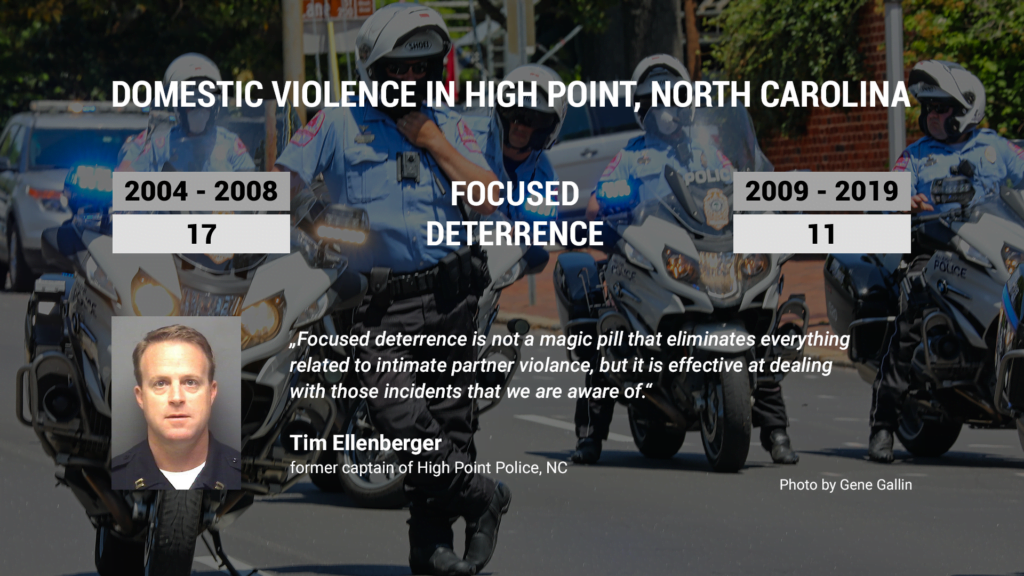
Tim Ellenberger, former captain of High Point Police
What are the statistics of intimate partner homicides in High Point in the last 10 years and how do you see the impact of focused deterrence in reduction of domestic violence since 2009?
Since 2009, we have investigated 11 Intimate Partner Homicides. That compares to 17 IP Homicides in the five years prior to implementation of our strategy.
What do you think about focused deterrence as a tool to reduce domestic violence and what do you consider the most effective tool to reduce intimate partner homicides?
Focused Deterrence is a valuable tool in addressing Intimate Partner Violence. It’s not a “magic pill” that eliminates everything related to Intimate Partner Violence, but it is effective at dealing with those incidents that we’re aware of. Since beginning this strategy, only one notified offender has committed a homicide of his intimate partner (out of over 3100 notified offenders). So, obviously there were ten other IP homicides. In those ten cases we were unaware of any prior IP violence. This strategy is most effective at keeping the IP violence offender from becoming a chronic offender and escalating the violence.

In recent years we can see an increase in homicides in High Point. What do you consider to be a reason and how much of them are related to domestic violence?
I think this is another indication of the effectiveness of the strategy. Homicides have increased in High Point and surrounding cities. But, IP homicides haven’t necessarily seen the same increase. Also, as I indicated above, only one notified offender has committed a homicide of his intimate partner (out of over 3100 notified offenders).
How to achieve the sustainability of positive results and how do you plan to continue in the coming years?
We’ve put structure around our strategy. There are clearly defined expectations for when an officer responds to, documents, and follows up on Intimate Partner Violence incidents. So, for us, it’s not a project and there is no end date or exit strategy. It’s the way we do things.

According to a study by the National Coalition for the Homeless, 28% of families were homeless because of domestic violence (U.S. Conference of Mayors, 2008), and 39% of cities cited domestic violence as the primary cause of family homelessness (U.S. Conference of Mayors, 2007). In your opinion, to what extent it would be possible to reduce homelessness by reducing domestic violence?
I think the numbers you’ve provided indicate clearly that if you reduce domestic violence, you’ll reduce homelessness (at the very least, you’ll reduce the homelessness caused by this violence). Homelessness is just one of the results of domestic violence, albeit a devastating result. The impact on families, children and many other things are almost too comprehensive to measure.
(Interview with Jan Maloch, PIQASO)


